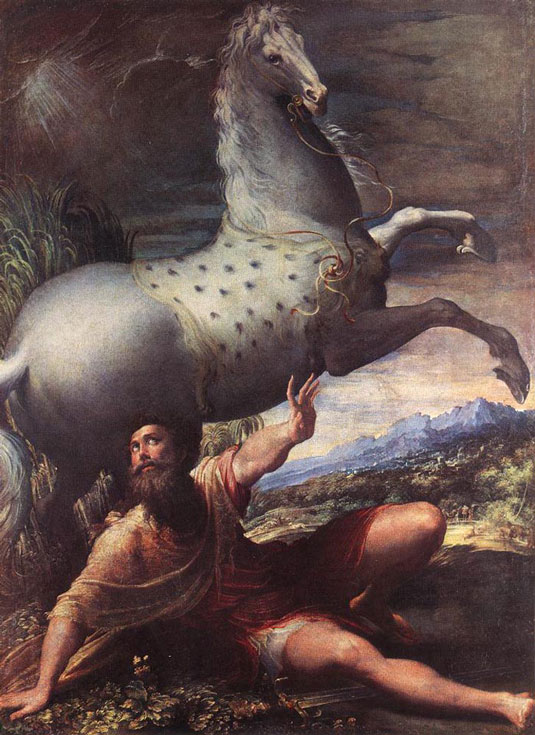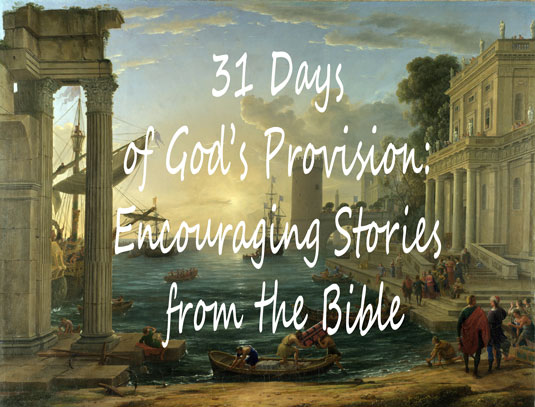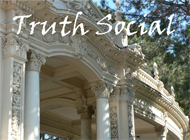 During the days of the early church many people were becoming believers in Jesus Christ. Those who had witnessed his ministry, death and resurrection were spreading the gospel message, also known as the good news. All this evangelism didn’t sit well with the Jewish religious leaders, and so they tried to put a stop to it.
During the days of the early church many people were becoming believers in Jesus Christ. Those who had witnessed his ministry, death and resurrection were spreading the gospel message, also known as the good news. All this evangelism didn’t sit well with the Jewish religious leaders, and so they tried to put a stop to it.
One of these was a young Pharisee by the name of Saul, who had made a name for himself by zealously persecuting the Christians or followers of The Way, as they were sometimes called. Saul had even been present during the stoning of Stephen, the first Christian martyr. As Saul himself would later admit, he stood by holding the coats of those doing the stoning.
“And when the blood of your martyr Stephen was shed, I stood there giving my approval and guarding the clothes of those who were killing him.” Acts 22:20, NIV
This persecution caused the early church to scatter. It did not however, prevent the good news from being shared—but in fact, actually facilitated the spread of the gospel beyond the city of Jerusalem.
When our story opens, Saul has learned that a group of Christians have fled to Damascus.
Meanwhile, Saul was still breathing out murderous threats against the Lord’s disciples. He went to the high priest and asked him for letters to the synagogues in Damascus, so that if he found any there who belonged to the Way, whether men or women, he might take them as prisoners to Jerusalem. Acts 9:1-2, NIV
Saul is on the road to Damascus, traveling along his merry way, when at about noon he receives an unexpected visit.
As he neared Damascus on his journey, suddenly a light from heaven flashed around him. He fell to the ground and heard a voice say to him, “Saul, Saul, why do you persecute me?” Who are you, Lord?” Saul asked. “I am Jesus, whom you are persecuting,” he replied. “Now get up and go into the city, and you will be told what you must do.”
The men traveling with Saul stood there speechless; they heard the sound but did not see anyone. Saul got up from the ground, but when he opened his eyes he could see nothing. So they led him by the hand into Damascus. For three days he was blind, and did not eat or drink anything. Acts 9:3-9, NIV
Now Saul is in a sorry state. He doesn’t understand what has happened to him. He can’t eat. He can’t drink. He needs help, so he prays.
The Lord instructs a disciple named Ananias to go to Saul so that he might restore his sight and tell him what God has in mind for his future.
In Damascus there was a disciple named Ananias. The Lord called to him in a vision, “Ananias!” “Yes, Lord,” he answered. The Lord told him, “Go to the house of Judas on Straight Street and ask for a man from Tarsus named Saul, for he is praying. In a vision he has seen a man named Ananias come and place his hands on him to restore his sight.” Acts 9:10-12, NIV
Now, all the scattered Christians know exactly who Saul is, as he is their chief persecutor. Ananias points out this fact to God—just in case he’d forgotten.
“Lord,” Ananias answered, “I have heard many reports about this man and all the harm he has done to your holy people in Jerusalem. And he has come here with authority from the chief priests to arrest all who call on your name.” But the Lord said to Ananias, “Go! This man is my chosen instrument to proclaim my name to the Gentiles and their kings and to the people of Israel. Acts 9:13-15, NIV
Ananias does as he is instructed, and Saul regains his sight.
Then Ananias went to the house and entered it. Placing his hands on Saul, he said, “Brother Saul, the Lord—Jesus, who appeared to you on the road as you were coming here—has sent me so that you may see again and be filled with the Holy Spirit.” Immediately, something like scales fell from Saul’s eyes, and he could see again. He got up and was baptized, and after taking some food, he regained his strength. Acts 9:17-19, NIV
Now recovered, Saul immediately begins to preach throughout Damascus. Those who witness his transformation are stunned.
At once he began to preach in the synagogues that Jesus is the Son of God. All those who heard him were astonished and asked, “Isn’t he the man who raised havoc in Jerusalem among those who call on this name? And hasn’t he come here to take them as prisoners to the chief priests?” Yet Saul grew more and more powerful and baffled the Jews living in Damascus by proving that Jesus is the Messiah. Acts 9:20-22, NIV
As a learned Pharisee, Saul has both the authority and the credentials to share his testimony with fellow Jews, which he eventually does in Jerusalem, despite the risk of great peril to himself.
“I am a Jew, born in Tarsus of Cilicia, but brought up in this city. I studied under Gamaliel and was thoroughly trained in the law of our ancestors. I was just as zealous for God as any of you are today. I persecuted the followers of this Way to their death, arresting both men and women and throwing them into prison, as the high priest and all the Council can themselves testify. I even obtained letters from them to their associates in Damascus, and went there to bring these people as prisoners to Jerusalem to be punished.
“About noon as I came near Damascus, suddenly a bright light from heaven flashed around me. I fell to the ground and heard a voice say to me, ‘Saul! Saul! Why do you persecute me?’ “‘Who are you, Lord?’ I asked. “‘I am Jesus of Nazareth, whom you are persecuting,’ he replied. My companions saw the light, but they did not understand the voice of him who was speaking to me. “‘What shall I do, Lord?’ I asked.
“‘Get up,’ the Lord said, ‘and go into Damascus. There you will be told all that you have been assigned to do.’ My companions led me by the hand into Damascus, because the brilliance of the light had blinded me.
“A man named Ananias came to see me. He was a devout observer of the law and highly respected by all the Jews living there. He stood beside me and said, ‘Brother Saul, receive your sight!’ And at that very moment I was able to see him. “Then he said: ‘The God of our ancestors has chosen you to know his will and to see the Righteous One and to hear words from his mouth. You will be his witness to all people of what you have seen and heard. Acts 22:3-15, NIV
Saul’s conversion brought a dramatic change to his life and to his purpose for living. The same man who had previously hunted down and imprisoned Christians, became the great Apostle Paul, who not only continued to preach the good news over a wide area of Europe and Asia, but also authored several books of the New Testament.
Saul’s condition of physical blindness pointed to a much larger problem of spiritual blindness. Through the restoration process, God not only brought sight to his eyes, but to his heart as well.
Saul’s story was one of blindness, but God’s provision was one of sight.
Join me tomorrow for a story involving two small fish, twelve baskets, and a provision of food!
 If you’ve missed any part of this series, you can find all of the posts in the side bar category 31 Days of God’s Provision.
If you’ve missed any part of this series, you can find all of the posts in the side bar category 31 Days of God’s Provision.
On the journey toward Home,












{ 3 trackbacks }